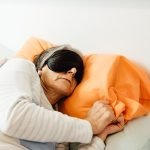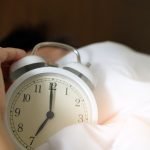Staring at the clock makes sleep loss worse, increases sleep aid use
The Trouble with Insomnia
Ever found yourself lying wide awake at night, watching the minutes tick by on the clock? This frustrating situation is all...
Deep sleep may reduce memory loss caused by Alzheimer’s disease
A recent study by researchers at the University of California, Berkeley, suggests that deep sleep might offer protection against memory loss in older adults...
Sleep apnea linked to worse brain health
What is Sleep Apnea?
Sleep apnea is a common but serious sleep disorder. It causes breathing to stop and start repeatedly during sleep. One of...
Sleep apnea and the risk of long COVID: A significant connection
The Scope of Long COVID in the US
As of April 2023, the virus that causes COVID-19 has infected more than 100 million Americans.
According to...
Many people suffer from sleep apnea without knowing
What is Obstructive Sleep Apnea?
Obstructive Sleep Apnea (OSA) is a common sleep disorder. People with OSA often snore loudly and stop breathing at times...
Sleep supplement melatonin could increase gut inflammation
Melatonin, a hormone often taken as a sleep aid supplement, can potentially worsen inflammation of the intestine and impair the action of gut bacteria,...
Deep sleep may reduce memory loss in Alzheimer’s disease
A new study from the University of California, Berkeley, reveals that deep, non-REM slow-wave sleep can act as a protective factor against memory decline...
Tips for improving sleep in older adults
Brienne Miner, MD, MHS, assistant professor of medicine (geriatrics), loves to talk about sleep.
She first became interested in the subject when she noticed the...
A nap a day keeps the doctor away: How to know if you’re napping...
It's no secret; life is exhausting. After a long day of class or work, it takes everything not to fall asleep as soon as...
Sleep spindles may reduce anxiety in people with PTSD
A new study shows that sleep spindles, brief bursts of brain activity occurring during one phase of sleep and captured by EEG, may regulate...










